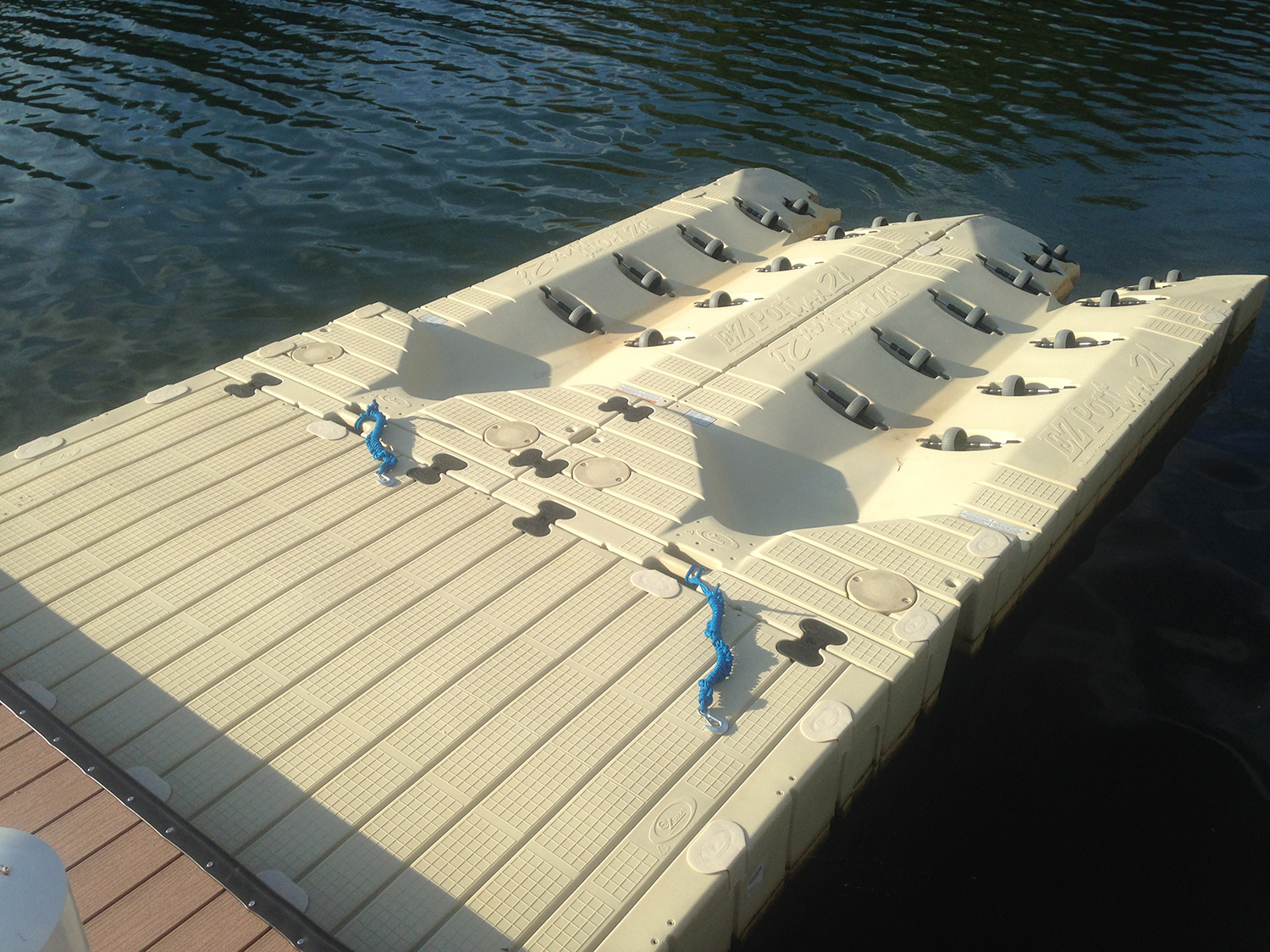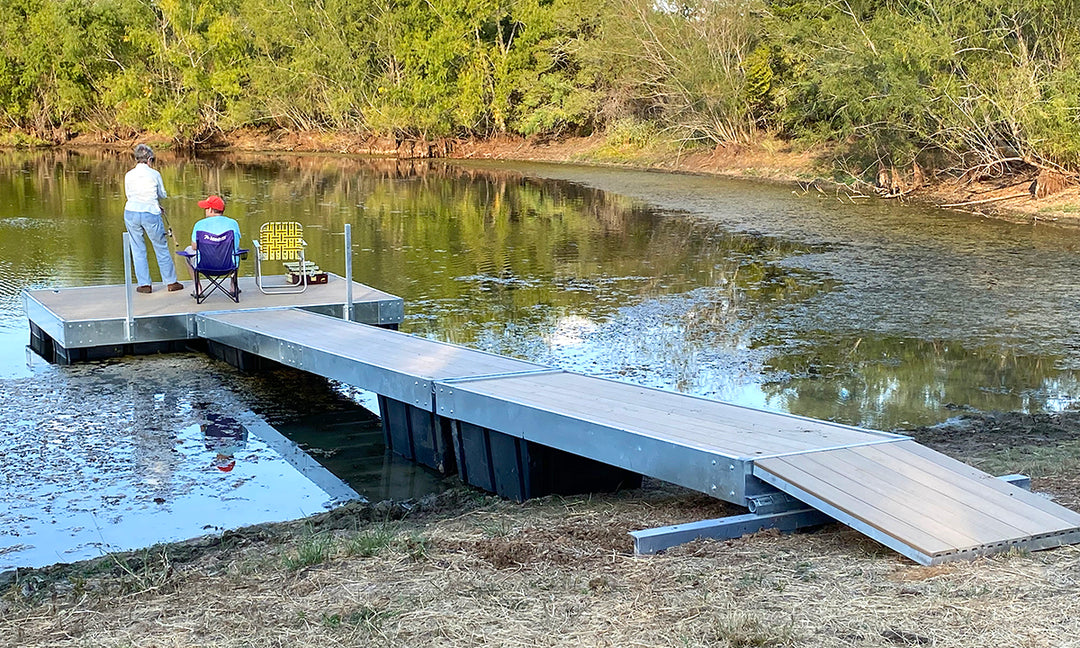Selecting the Right Dock Company: Elements to Consider for a Seamless Installation
The Ultimate Overview to Selecting the very best Floating Docks
Choosing the suitable floating dock needs an extensive understanding of different elements that affect both efficiency and durability. Factors such as dock kinds, products, and essential attributes dramatically impact your decision-making process. Furthermore, considerations around installment and budget can better complicate the selection. By taking a look at these aspects systematically, one can make sure an investment that not just satisfies immediate demands however likewise boosts total residential property worth. As we discover these important components, it ends up being clear that the appropriate options can lead to a lasting and useful option tailored to your particular needs.
Understanding Floating Dock Types
When picking a drifting dock, it is crucial to recognize the various kinds available, as each serves distinctive functions and applications. Floating docks mainly drop right into three categories: modular, stationary, and pontoon docks.
Modular docks are made up of individual sections that can be easily set up or reconfigured, making them excellent for changing water levels and diverse usages, such as entertainment tasks or commercial procedures. Their flexibility permits personalization based on certain needs.

Pontoon docks are characterized by their buoyant framework, usually made up of several pontoons that give stability and support. They are especially appropriate for larger vessels and are frequently made use of in marinas or for beachfront properties. Understanding these types help in picking one of the most proper floating dock to meet certain needs, ensuring optimal capability and safety and security.
Trick Products for Sturdiness
Picking the right materials for floating docks dramatically effects their durability and durability. The most typical products consist of timber, plastic, steel, and composite products, each offering unique advantages and constraints.
Timber, frequently preferred for its aesthetic allure, requires normal upkeep to withstand wetness and decay. Pressure-treated lumber can boost resistance to rot, but it may still be at risk to parasites and weathering.

Plastic docks, made of high-density polyethylene (HDPE), are resistant to rust, UV radiation, and influence, making them a preferred choice for coastal settings. Their light-weight nature also helps with very easy installment and relocation.
Metal docks, usually built from light weight aluminum or galvanized steel, supply phenomenal strength and resilience. They are resistant to rust, especially when treated, however may call for additional insulation to stop warm build-up in warm environments.
Composite products, combining wood fibers and plastics, deliver the advantages of both timber and plastic, standing up to wetness and fading while needing minimal maintenance. - floating docks
Ultimately, the selection of products must align with environmental conditions, planned use, and maintenance choices to ensure the floating dock remains practical and visually pleasing with time.
Vital Attributes to Consider
While the selection of materials is important, thinking about essential attributes for floating docks is just as essential to guarantee ideal efficiency and individual complete satisfaction. One key function to analyze is the dock's buoyancy capacity, which identifies just how much weight it can support without submerging. dock company. This is essential for accommodating watercrafts, personal boat, and also recreational tasks
In addition, portability is a considerable consideration. Depending upon your demands, you might desire a dock that is easy to transfer and dismantle, specifically if you plan to move it seasonally. Security is an additional vital attribute; a well-designed floating dock needs to minimize motion triggered by wind and water currents, giving a secure system for customers.
Safety features, such as non-slip surfaces and rounded edges, are also Learn More Here important to stop crashes, particularly in wet conditions. Moreover, think about the availability of devices, such as ladders, bumpers, and cleats, which can boost the capability of your dock.
Setup and Upkeep Tips
Setting up and maintaining a drifting dock requires cautious preparation and focus to information to ensure its longevity and optimal performance. Begin by picking an appropriate location that minimizes direct exposure to strong currents and waves, which can cause damage. Guarantee that the water depth is sufficient for the dock's height which it is anchored safely to avoid activity.
Throughout setup, adhere to the maker's guidelines closely, as incorrect assembly can compromise stability. Usage top notch products resistant to deterioration, such as aluminum or treated timber, to improve longevity. Frequently examine all parts, consisting of drifts, connectors, and anchoring systems, for indications of damage or wear.
Upkeep is crucial for prolonging the life of your dock. Tidy the surfaces regularly to avoid algae buildup and check for any kind of loosened fittings that might need tightening. Ensure they stay complimentary and intact from slits if your dock uses flotation gadgets. Additionally, think about applying protective finishings to wooden components to decrease weathering impacts. By adhering to these installation and maintenance tips, you can delight in a useful and reliable floating dock for many years ahead.
Budgeting for Your Dock
Budgeting for your dock is an important step that can substantially affect your overall contentment and investment in a waterfront residential or commercial property. Developing a clear budget plan assists you navigate the various options readily available and guarantees you make notified decisions that align with your monetary capabilities.
Begin by establishing the size and design of the dock you need, as these elements will significantly influence the cost. Floating docks can vary substantially in cost, relying on materials, buoyancy, and features like accessories and ramps. Research various suppliers and providers to contrast costs and comprehend the market value.
Along with preliminary prices, think about recurring costs such as maintenance, insurance, and possible repair services. Designate funds for these reoccuring expenses to avoid surprises down the line. It's also prudent to spending plan for any type of necessary licenses or evaluations, which may be required by regional laws.
Last but not least, bear in mind the possible roi. A tactical dock can improve your residential or commercial property's worth and appeal, giving a favorable monetary effect in the long-term. By budgeting efficiently, you can make certain that your dock meets your needs without jeopardizing your financial stability.
Final Thought
To conclude, choosing the excellent floating dock necessitates a complete assessment of various factors, including dock additional info types, products, necessary attributes, and setup processes. Focusing on longevity and compliance with local regulations ultimately enhances capability and building worth. Cautious factor to consider of budgetary constraints will better make sure a sound investment. By sticking to these standards, individuals go to website can make enlightened choices that advertise lasting contentment and functionality in marine atmospheres.

While the choice of products is essential, thinking about vital attributes for floating docks is equally crucial to make sure optimum performance and individual complete satisfaction.Setting up and keeping a floating dock requires cautious preparation and attention to information to ensure its longevity and ideal performance. Floating docks can vary substantially in rate, depending on products, buoyancy, and features like accessories and ramps.In final thought, choosing the suitable floating dock requires a complete assessment of numerous elements, consisting of dock types, products, important features, and installment procedures.